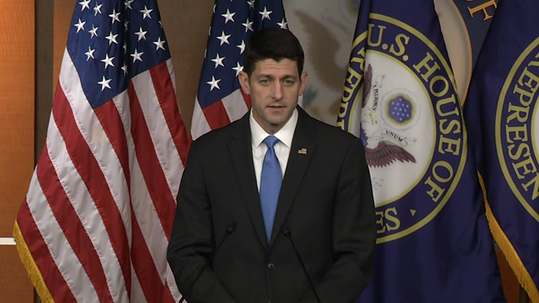To endorse or not: Paul Ryan’s Trump dilemma

Based on everything we know about them, it’s hard to imagine Paul Ryan endorsing Donald Trump.
But it’s even harder to imagine him not doing it.
“It’s hard to preside over the convention of your nominee and not support him,” says Oklahoma Republican Tom Cole, a friend and House colleague of Ryan’s, who like many in the party expects an endorsement to come.

“The speaker’s number one job is to help maintain the (GOP) majority, and a rift between the nominee and the speaker is not going to be helpful in the fall campaign,” says Cole.
“I would be surprised if he doesn’t get there, because he wants to get there,” Reince Priebus, a close friend, fellow Wisconsinite and chairman of the Republican National Committee, said Sunday when asked on ABC’s This Week if he expects Ryan to endorse Trump.
When Ryan agreed to be House speaker last fall, he took a job that’s famous for ending careers, that came with the baggage of a divided party and divided government, and that typically means making everyone unhappy.
One of the few political benefits was that it gave Ryan an excuse for staying out of a wild and ugly fight for the GOP nomination.
That’s gone now. Ryan’s party is nominating the Republican most likely to make him squirm, and neutrality isn’t an option for the highest-ranking GOP office holder in America.
“This is a real quagmire for him,” said U.S. Rep. Gwen Moore, a Milwaukee Democrat who likes Ryan and made that comment with sympathy, not glee.
Ryan is conservative in ideology and moderate in tone. Trump is immoderate in tone and populist, nationalist and changeable in ideology.
Политика конфиденциальности | Правила пользования сайтом







